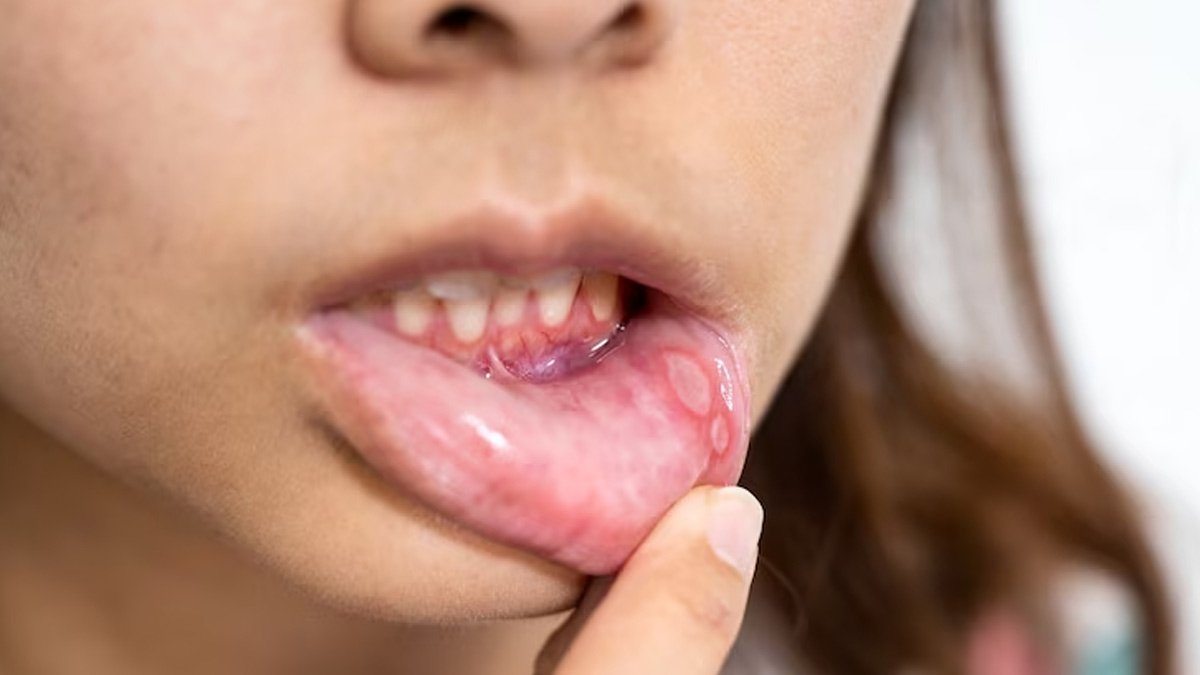
Mouth ulcers are common problems that many adults suffer from. But do you know that children also suffer from mouth ulcers? To learn more about mouth ulcers in children, we talked to Dr Srinivas Midivelly, Consultant Paediatrician, Yashoda Hospitals Hyderabad.
Table of Content:-
Mouth ulcers are often round or oval sores occurring on the cheeks, lips or tongue inside the mouth. These ulcers can swell and appear white, red, yellow or grey. It is possible to have more than one mouth ulcer at a time, which may spread or grow further.
Cold sores, which form little blisters on the lips or around the mouth, should not be mistaken for mouth ulcers. Cold sores may begin with tingling, stinging or burning around the lips.
Also Read: Pressure Ulcers: How This Skin Condition Affects People
Causes of Mouth Ulcers

Dr Midivelly says that the reason for mouth ulcers is unclear. The majority of single-mouth ulcers are produced by damage to the mouth's lining. He also gives example:
- Biting the inside of your cheek or a sharp object by accident
- Poorly fitting dentures
- Hard food
- A defective filling
- It is not always obvious what causes recurring mouth ulcers, although factors include:
- Stress and anxiety
- Consuming chocolate, coffee, spicy meals, almonds, peanuts, tomatoes, strawberries, cheese and wheat flour
- Toothpaste containing sodium lauryl sulphate
Mouth ulcers can be caused by a variety of medical issues, including:
- Viral infections such as the cold sore virus, chickenpox, and hand, foot and mouth disease.
- Vitamin B12 or iron deficiency
- Crohn's disease
- Coeliac disease
- Reactive arthritis
How to Treat Mouth Ulcers?

Mouth ulcers seldom require treatment because they heal on their own after a week or two. Treatment, on the other hand, might assist to minimise swelling and alleviate any discomfort. This may help if your child keeps getting mouth ulcers or if it affects eating and drinking.
- Things To Speed Healing
- Applying a protective paste
- Using a soft toothbrush to brush teeth
- Using a toothpaste that does not contain sodium lauryl sulphate, as this may be irritating
- Avoiding hard, spicy, salty, acidic or hot foods and drinks until the ulcer heals
- Using a straw to drink cool drinks
- Avoiding things triggers your mouth ulcers
Also Read: Mouth Ulcers: 7 Home Remedies To Treat Painful Sores
Pharmacy Medicines
You can get several types of treatment for mouth ulcers at a pharmacy. Options include the following:
Antimicrobial mouthwash may speed up healing and prevent infection of the mouth ulcer. Children under two should not use this treatment. It also contains chlorhexidine gluconate, which may stain teeth, but this may fade once treatment finishes.
Pain relievers are offered in the form of a mouthwash, lozenge, gel, or spray. They can sting on first use, and your mouth may feel numb, which is temporary. Mouthwash can be diluted with water if the stinging continues. Mouthwash should also not be used more than seven days in a row and should also be avoided by children under the age of 12.
Corticosteroid lozenges may alleviate pain and hasten recovery. These are best used as soon as the ulcer occurs, however, children under the age of 12 should not use them.
Image Credits: freepik
Also watch this video
How we keep this article up to date:
We work with experts and keep a close eye on the latest in health and wellness. Whenever there is a new research or helpful information, we update our articles with accurate and useful advice.
Current Version